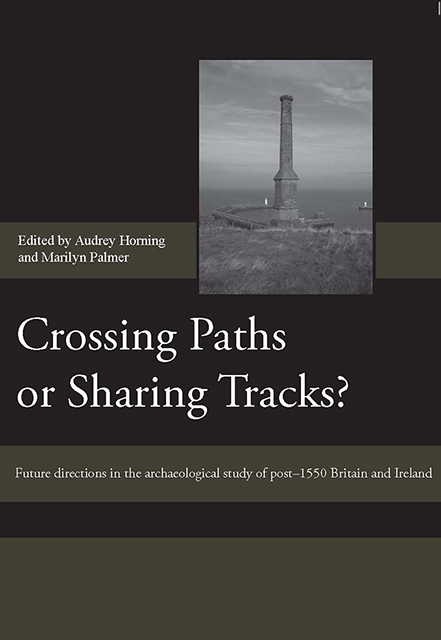 Crossing Paths or Sharing Tracks?
Crossing Paths or Sharing Tracks? Pulling the Threads Together: Issues of Theory and Practice in an Archaeology of the Modern World
Published online by Cambridge University Press: 07 March 2023
Summary
This chapter outlines an approach to an archaeology of the modern world that seeks to identify the major streams in a seemingly disparate history of the past five hundred years. Focusing on the interrelationship of the growthof capitalism, colonisation, urbanisation and industrialisation, I argue for a unified view of the history of the modern era. Drawing on bothhistorical and archaeological studies from a variety of geographical and temporal contexts, the discussion stresses the advantages of an approach that emphasises points of convergence and commonality among the forces that have shaped global history in the modern era. Particular emphasis is placed on the manner in which individual and group materiality interfaced withecologies of capitalism, colonialism, urbanism and industrialisation in shaping and reshaping modernity.
INTRODUCTION
In the abstract, it would seem easy to find common ground among a group of practitioners whose intellectual focus is the archaeology of the last five hundred years. Whether your interest is industry, or colonialism or the transformation of a medieval, feudal world into something distinctly post-medieval and modern, there is no denying that these events are part of a larger historical tapestry. Yet as the three days of the Crossing Paths or Sharing Tracks? conference and this subsequent volume have shown, diff erences of tradition, educational background and point of entry have produced a somewhat fractured and eclectic intellectual landscape that makes the navigation of this complex period all the more challenging. Some of these diff erences are intellectual and reflect contrasting interests. Some are very practical, and here I am talking about diff erences in funding and practice. In the United States, the division between university-based archaeologists and those employed primarily in cultural resource management (CRM) has narrowed significantly over the past twenty years due in large measure to a combination of funding realities and the growing interest in heritage and memory as topics of theoretical significance. Most archaeology carried out in the United States is CRM-based research, but the character of the work has changed. Much of the work remains compliance-related, that is, normally triggered by commercial development or large federally or state-funded projects. There has also been an expansion of heritage-based research that is linked to tourism, development in national parks, or research funded by Tribal Nations who want to insure that their own development does not destroy their own archaeological legacies.
- Type
- Chapter
- Information
- Crossing Paths or Sharing Tracks?Future directions in the Archaeological Study of Post-1550 Britain and Ireland, pp. 381 - 396Publisher: Boydell & BrewerPrint publication year: 2009
- 3
- Cited by


